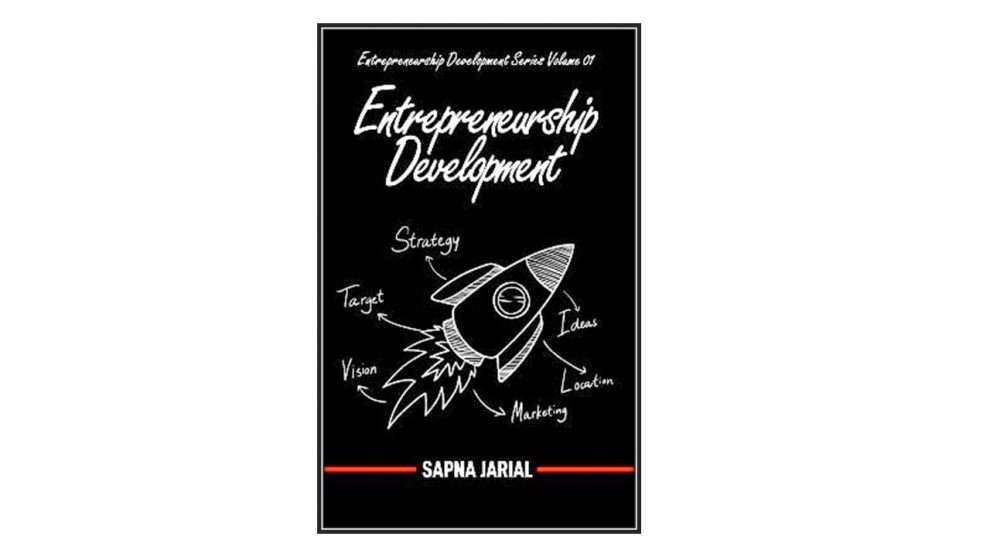Editor: Sapna Jarial
Publisher: NIPA Genx Electronic Resources & Solutions Pvt Ltd, New Delhi
Language: English
Pages: 240
ISBN: 978-93-95319-24-9
Price: INR 1495 (Hard Cover)
‘Entrepreneurship development’ is a buzz word, resounding in many forums, development dialogues, conferences, workshops and training programs, and in the agricultural sector as well in recent years. Many development practitioners, policy makers, teachers and students are looking for reference books and learning material on this topic. So, publishing books on entrepreneurship is trendy currently and is also truly demand driven. There are 13 chapters in this book – written by different authors including the editor herself – addressing different aspects of entrepreneurship development. It promises to be useful, especially for undergraduate students who want to understand the concepts of entrepreneurship, business skills and values for developing business ventures. Also, it attempts to impart basic skills for starting enterprises, illustrating knowledge about new business plans and evaluating the practical aspects of entrepreneurship so as to help students become innovative on creating opportunities in markets. The various chapters contributed by young and early career teachers throw up some ideas on entrepreneurship development which could be very useful for students in particular.
The introductory chapter by the editor properly introduces the concept of entrepreneurship. It is followed by another chapter on characteristics of an entrepreneur. Later chapters deal with subjects such as SWOT analysis, achievement motivation, role of government in entrepreneurship development, institutions for entrepreneurship and entrepreneurial development, impact of economic reforms on agri-enterprises, essential skills for entrepreneurship development, and entrepreneurial characteristics. There are a few other topics covered too – roadmap for business startup covering project planning formulation and report preparation; financing of an enterprise, and opportunities for agri-entrepreneurship and rural enterprise.
The editor has to be appreciated for her frankness in admitting that the book is based on research findings, books and other resources drawn from many academicians, researchers and authors who have been duly acknowledged. The authors’ experiences during the course of teaching, training and extension activities have enabled them to gather materials and concepts that facilitated the writing of various chapters, and it is also well-blended with their own experiences from the field.
The Fifth Deans Committee Report recommended that the course ‘Entrepreneurship Development and Business Communication’ be added to the undergraduate curricula of Indian Agricultural Universities. So, ideally this book could be good reference material for the students studying various branches under the broad umbrella of agriculture, including horticulture, animal science, and home science (especially at the undergraduate level). It appears that the editor and authors intend to bring out more volumes as part of the Entrepreneurship Development series. They can take care of some of the minor shortcomings in this volume, for example, some missing references in the bibliography which are cited in the main text. Also, the writing could be made lucid easy reading. It would be helpful if some additional standard books and other publications are read and some potential case studies are followed up before the next volume is brought out so that its readership could be expanded beyond students.
I have had the opportunity of reviewing for AESA in 2019 a wonderful book, Farming Futures: Emerging Social Enterprises in India. The authors would benefit from reading this book as it is rich in terms of corroborating arguments with appropriate evidence from well-chosen cases from diverse fields.
The authors here deserve credit for putting in so much hard work in shaping the material drawn from diverse sources. Finally, I wish to say that Ms Sapna Jarial, the editor of the book, has done a tremendous job in bringing out this book on such an important topic as a first part of the series. I enjoyed reading it and am confident that it will be useful to all readers, especially students.
Mahesh Chander

Dr Mahesh Chander, Joint Director (Extension Education), ICAR-Indian Veterinary Research Institute, Izatnagar-243122 (UP), India. Email: mchanderivri@gmail.com





Add Comment